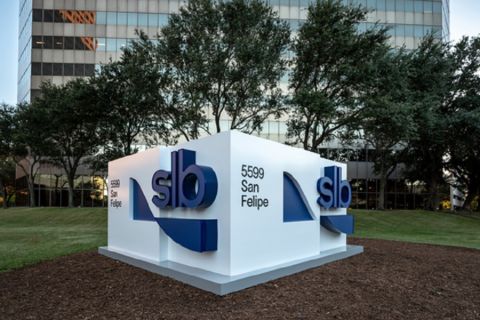Oilfield services provider Baker Hughes Co. on July 20 reported a bigger second-quarter loss, hit by a $365 million charge from its Russian operations and supply chain inflation, while adjusted profits also missed analysts’ forecasts.
The company’s shares sank 10.5% on the report to $25.25 in early trading. Its stock is up 17% since the beginning of the year.
Oil prices have surged in recent months, gaining around 53% in the second quarter compared with last year as Western sanctions on Russia's energy industry hit supplies. However, prolonged prices above $100/bbl and moves by central banks to curb inflation have stoked concerns of demand destruction and an economic slowdown.
“The demand outlook for the next 12 to 18 months is deteriorating, as inflation erodes consumer purchasing power and central banks aggressively raise interest rates to combat inflation,” Baker Hughes CEO Lorenzo Simonelli said in a statement.
The company’s results “were mixed” as it navigated challenges including component shortages, supply chain inflation and the suspension of its Russian operations, he added.
Baker Hughes also reported a nonoperating loss of $426 million related to its oilfield services unit in Russia, which it has classified as “held for sale” at the end of the second quarter as business there has become either “prohibited or unsustainable.”
The company had anticipated $300 million in EBITDA from its Russian operations, CFO Brian Worrell said during a conference call, but halted operations there after Russia invaded neighboring Ukraine, leading to waves of sanctions.
Revenue from its Russian oilfield services unit declined 51% sequentially to $60 million, leading to “meaningful cost under-absorption,” the company said on July 20. Its Turbomachinery and Process Solutions unit in Russia faced a $160 million revenue hit, and a $400 million negative impact on revenue is expected for the full-year, which should not affect margins, the company said.
The company posted a net loss of $839 million, or 84 cents per share, in the three months ended June 30, compared to a loss of $68 million, or 8 cents per share, a year ago.
Its adjusted net income rose to $114 million, or 11 cents per share, from $83 million, or 10 cents per share. Analysts had expected earnings of 22 cents per share, according to IBES data from Refinitiv.
“Baker Hughes struggled to meet revenue expectations and profit conversion remains a consistent problem,” Peter McNally, an analyst with Third Bridge, said on July 20.
He pointed to sales that fell 6% short of expectations, driven largely by the turbomachinery and process solutions segment, and Baker Hughes’ oilfield equipment segment, which failed to turn an operating profit for a second consecutive quarter.
Recommended Reading
SLB’s ChampionX Acquisition Key to Production Recovery Market
2024-04-19 - During a quarterly earnings call, SLB CEO Olivier Le Peuch highlighted the production recovery market as a key part of the company’s growth strategy.
PHX Minerals’ Borrowing Base Reaffirmed
2024-04-19 - PHX Minerals said the company’s credit facility was extended through Sept. 1, 2028.
BP Restructures, Reduces Executive Team to 10
2024-04-18 - BP said the organizational changes will reduce duplication and reporting line complexity.
Matador Resources Announces Quarterly Cash Dividend
2024-04-18 - Matador Resources’ dividend is payable on June 7 to shareholders of record by May 17.
EQT Declares Quarterly Dividend
2024-04-18 - EQT Corp.’s dividend is payable June 1 to shareholders of record by May 8.





